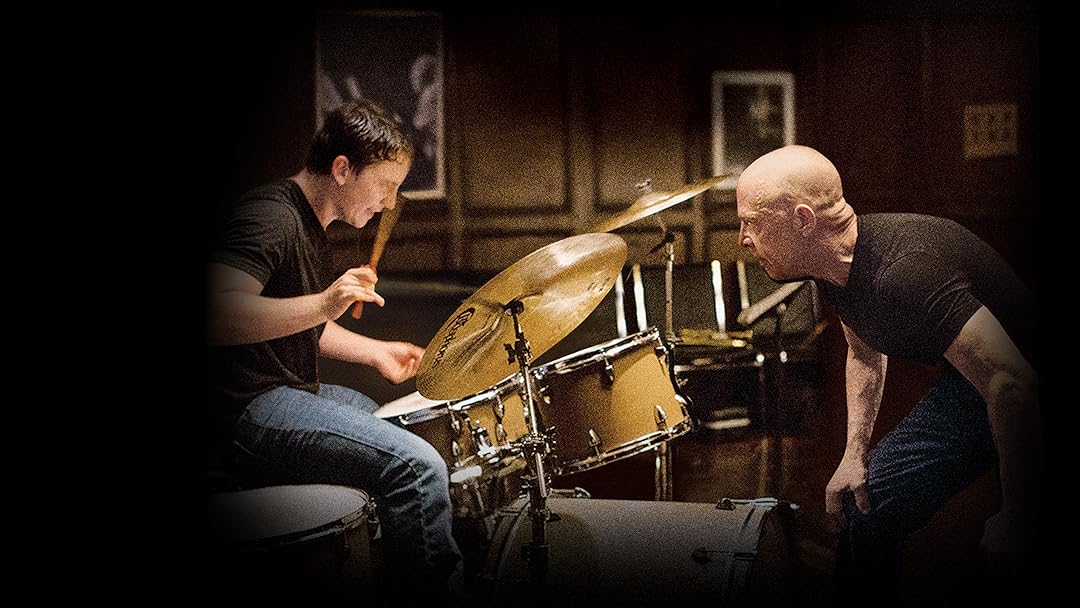
Whiplash: The Beautiful Brutality of Obsession
“There are no two words in the English language more harmful than ‘good job.’” — Terence Fletcher
Some films feel like a slow dance. Whiplash is a punch in the gut.
It’s a film that doesn’t ask you to feel comfortable, it dares you to sit in the burn. In the bleeding hands, the snapped sticks, the blood on cymbals, and the madness behind excellence.
This is not a film about jazz. It’s a film about obsession. About how far one can bend before breaking and whether that break is the price of greatness.
The Fire That Consumes
Damien Chazelle’s Whiplash isn’t subtle. It’s a relentless collision between student and mentor, art and abuse, ambition and annihilation.
Andrew Neyman (Miles Teller) doesn’t want to be good. He wants to be the best and he finds his crucible in Terence Fletcher (J.K. Simmons), a conductor who sees potential not as a gift, but as a curse that demands punishment.
Fletcher doesn’t teach. He provokes. He shatters egos, breaks spirits, and rebuilds them with pain. And in doing so, the film asks the question that lingers long after the credits roll: Is greatness worth your soul?
The Rhythm of Pressure
There’s barely a moment to breathe. The cuts are sharp, the tempo relentless, mirroring Andrew’s descent into tunnel vision. He practices until his hands bleed. He loses friendships. He destroys love. He isolates himself in pursuit of an idea: that genius only comes when everything else is sacrificed at its altar.
And yet, in the madness, there’s beauty. There’s the drumming - violent, desperate, alive. There’s the final performance, not just a climax, but a transcendence. A moment of mutual destruction turned symphony.
When Abuse Masquerades as Art
But here’s the ache: Whiplash never answers the moral question. It leaves it bruised, hanging in mid-air.
Was Fletcher a monster or a muse?
Did Andrew become great or just broken?
It doesn’t wrap itself up in tidy conclusions. It lets the audience sit with the discomfort of admiration and horror coexisting. And maybe that’s the point, in a world that celebrates hustle culture and glorifies burnout, Whiplash is a mirror that cuts deeper than it reflects.
Why It Matters Now
We are told to chase our dreams. But what if the dream chases you back with teeth?
In an age obsessed with success metrics, Whiplash is both a cautionary tale and a siren song. It exposes the violence beneath perfection. It romanticizes ambition, then smashes the rose-tinted lens with a cymbal crash.
It doesn’t tell you to stop striving.
It just asks, at what cost?
Final Frame
Some films heal. Others haunt. Whiplash does neither.
It electrifies. It wounds. And somehow, you say thank you.
In that final scene, eyes lock, drums thunder, and silence becomes applause.
Whiplash isn’t about music. It’s about becoming the music. No matter how much of yourself it costs.